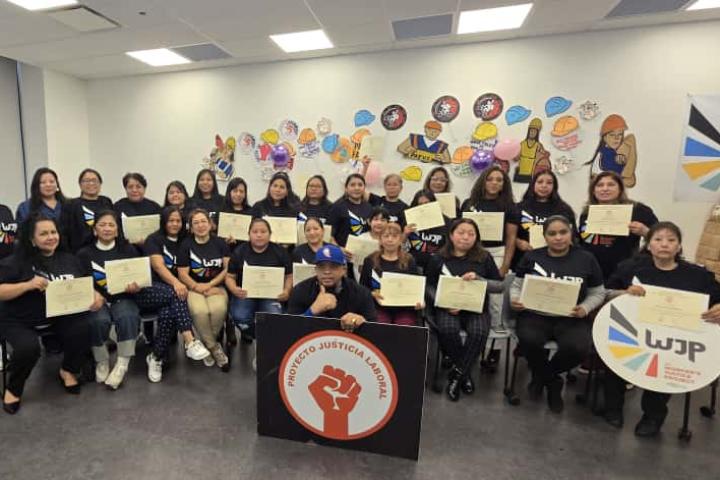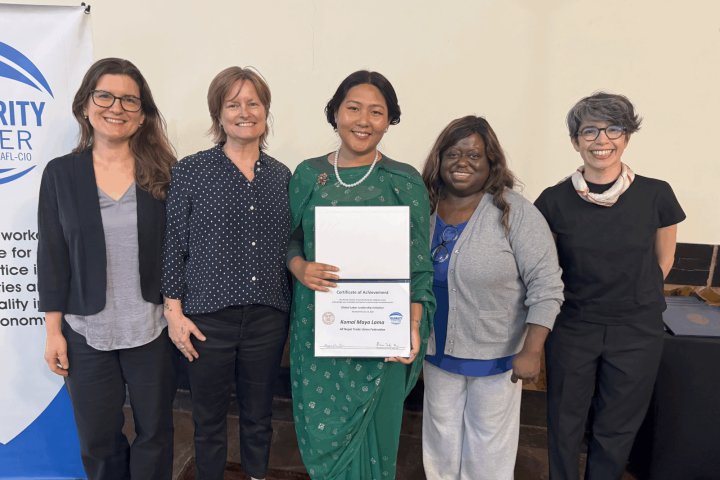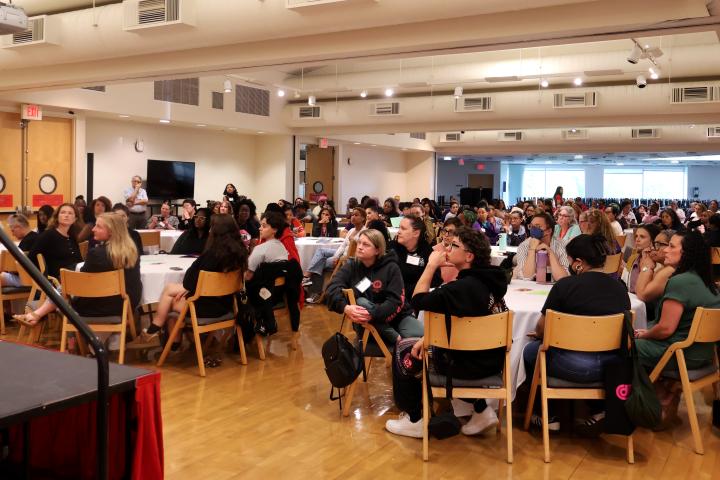
Climate Jobs Institute Launches Colorado Report
On January 16, 2025, Cornell ILR’s Climate Jobs Institute (CJI) published a report titled “Colorado’s Clean Energy Jobs Path,” a vision and roadmap for tackling climate change in Colorado while also preserving and creating high-quality jobs and forging a more equitable future.
This report is a culmination of two years of deep engagement and collaboration with the Colorado State Building and Construction Trades, the Colorado AFL-CIO, and their affiliates. In conjunction with the report release, these labor organizations launched “Climate Jobs Colorado,” a union-led coalition to advance union jobs, clean energy, and economic justice.
Melissa Shetler, assistant director of Labor Outreach and Workforce Equity at CJI and co-author of the report, attended the launch event, held at the Denver Joint Electrical Apprenticeship & Training Committee location, and delivered remarks on behalf of the institute. "I want to express gratitude to the union leaders, many of whom gave us your expertise, your feedback, took time to interview with us, and helped shape the recommendations in this report." Shetler also thanked the CJI team, in particular Ben Harper, who co-authored the report.
Other speakers included:
- Nate Bernstein, executive director of Climate Jobs Colorado
- Jason Wardrip, president of Climate Jobs Colorado and business manager of the Colorado Building and Construction Trades Council
- Daniel Mondragon, vice president of Climate Jobs Colorado and business manager of IBEW Local 113
- Dennis Dougherty, executive director of Colorado AFL-CIO
- Dennis Hawkins, chief steward, Rail Operations, for Amalgamated Transit Union Local 1001
- Aidan Boyd, who's on the wait list to become an electrician apprentice.
Many of the speakers emphasized the benefits of building a more environmentally sustainable and resilient economy with union labor. Unions produce highly-trained workers and deliver quality work on time and on budget while ensuring safe working conditions, family-sustaining wages and benefits, and economic stability.
Dennis Hawkins, chief steward at ATU, offered a poignant description of organized labor's role in the economy: "I think the most important work that all unions have, no matter what occupations they support, is to remind our employers that they have human beings working for them."
The labor leaders in the room were in agreement that climate change was creating unstable and dangerous living and working conditions, and it was time for change. These unions see themselves as part of the solution to the crisis of climate, but also of inequality and the cost of living.
Jason Wardrip, president of Climate Jobs Colorado, talked about how very few clean energy projects in Colorado were built by unions and instead built by nonunion workers brought in from out of state. "We should be supporting our workers and our economy," especially when state taxpayer money funds these projects. "We want climate jobs to be good union jobs. We want a greater share of the green economy to be represented by unions."
The launch event live stream recording can be viewed on the Climate Jobs Colorado's Facebook page.


